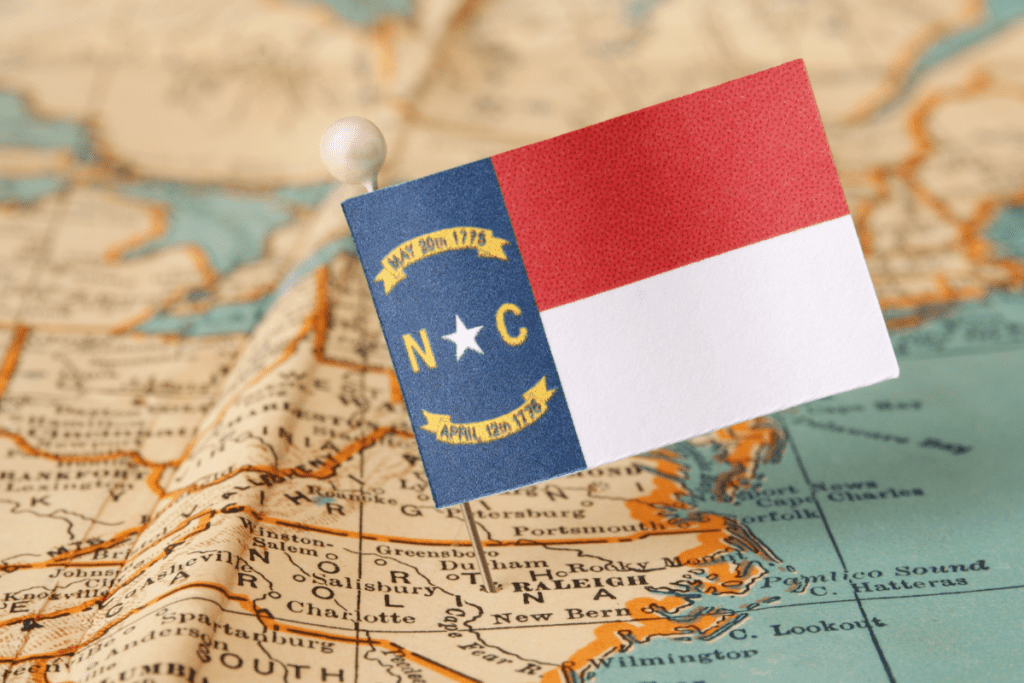Your homeowners association, or HOA, is imbued with certain authority. For example, your HOA Board may have the power to collect dues, to plan special assessments, to conduct HOA elections, and to conduct various legal and business transactions on the community’s behalf. At the same time, you have certain responsibilities, including fiduciary responsibilities, to the homeowners who live in your community. These powers and duties should all be clearly outlined in your community’s rules, regulations, and covenants.
It’s also important to note that your HOA is beholden to both federal and state laws. If you operate an HOA in the State of North Carolina, it’s wise to study up on what NC laws have to say regarding HOA communities. Be aware that all of your rules, regulations, and covenants must be fully compliant with, and subordinate to, these civic laws. The laws cover everything from solar panels to debt collection measures.
Questions about the law and its relationship to your NC HOA? Connect with Kuester Management Group. We provide HOA Management in Charlotte NC, Huntersville NC, and Wilmington NC.
Which Laws Apply to North Carolina Homeowners Associations?
While the following list is not meant to be comprehensive, nor to include every statute that might apply to people in NC HOAs, we hope it’s a useful overview.

North Carolina Unit Ownership Act, N.C. Gen. Stat. §§47A-1, et seq.
This law only applies to condominiums that were created in North Carolina prior to October 1986. If you’re in a newer community, you can safely disregard this particular statute.
North Carolina Condominium Act, N.C. Gen. Stat. §§ 47C-1-101, et seq
For condominiums that were created after October 1, 1986, this statute applies, and offers some guidelines with regard to the creation, alteration, and protection of condominium associations.
North Carolina Planned Community Act, N.C. Gen. Stat. §§ 47F-1-101, et seq.
Here’s an important law that pertains to any planned communities that were created following January 1, 1999. If your community falls under that umbrella, make sure you take the time to review all the stipulations included in this law.
North Carolina Nonprofit Corporation Act, N.C. Gen. Stat. §§ 55A-1-01, et seq.
In this statute, the State of North Carolina outlines some rules and restrictions regarding the incorporation of non-profit organizations. A majority of HOA communities are incorporated in this way, making this a very relevant law.
Prelitigation mediation of condominium and homeowners association disputes, N.C. Gen. Stat. § 7A-38.3F
Under this law, your HOA must notify homeowners on an annual basis of their legal right to file for mediation, should they have any dispute or grievance with the HOA entity. It should be noted that this statute does not extend to any disputes that arise from homeowners simply not paying their assessments!
North Carolina Debt Collection Act (NCDCA), N.C. Gen. Stat. §§ 75-50, et seq.
Part of your job as an HOA Board is to collect dues and assessments from members of the community. This law puts some guidelines and restrictions in place regarding debt collection practices. You can think of it as a state-level version of the Fair Debt Collection Practices Act (FDCPA), which prohibits the use of any deceptive or shady practices in your debt collector process.

North Carolina State Fair Housing Act (NCFHA), N.C. Gen. Stat. §§ 41A-1, et seq.
North Carolina’s counterpart to the federal Fair Housing Act (FHA), this statute prohibits any type of housing discrimination on the basis of things like race, ethnicity, color religion, sex, familiar status, or national origin.
Frequently Asked Questions About NC Laws
With any specific questions, make sure you reach out to your property management company directly. In the meantime, here are a few additional FAQs.
HOA communities founded post-1999 are governed by the North Carolina Planned Community Act found in Chapter 47F of the North Carolina General Statutes. There is no one specific agency associated with this.
Can you be forced to join an HOA in North Carolina?
If you purchase a home in an HOA-governed community, then you are obligated to be a dues-paying member of that Association.
Do HOA bylaws have to be recorded in North Carolina?
For condo associations, a record must be made with the Register of Deed. This is not required for HOAs.
Do HOAs pay taxes in NC?
Most HOAs are considered to be corporations, which means they are required to file corporate taxes.
Are HOA bylaws legally binding in NC?
Yes, generally HOA bylaws are legally binding and enforceable.

